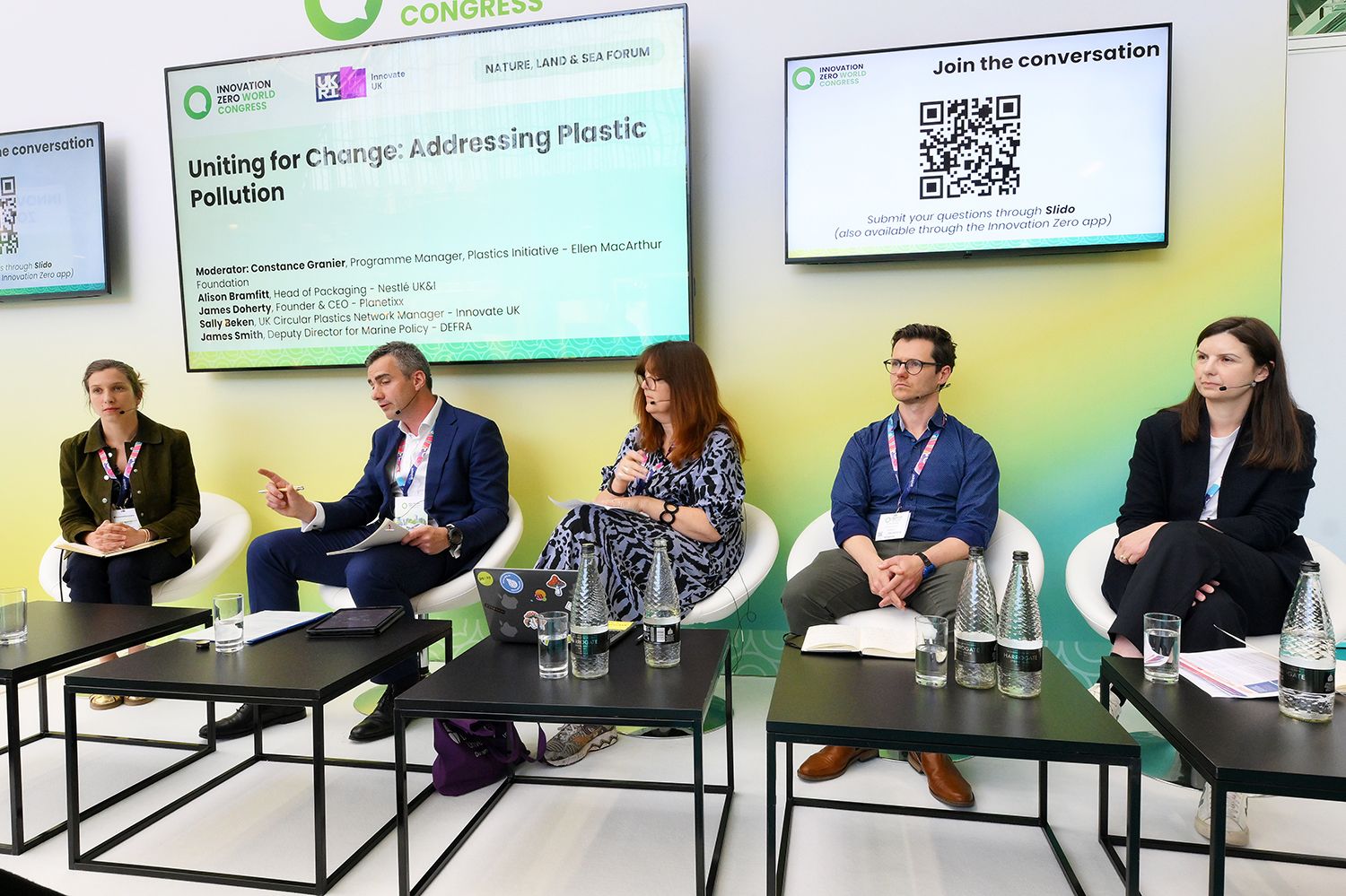World Environment Day 2025: Uniting for Change to #BeatPlasticPollution
Every year on June 5th, World Environment Day shines a spotlight on the most pressing environmental challenges of our time. In 2025, the focus is on one of the most visible and pervasive issues facing our planet: plastic pollution. With the theme #BeatPlasticPollution, this year’s campaign calls for urgent, coordinated action to eliminate plastic waste at its source, redesign our systems, and build a circular economy.
At our most recent edition of the Innovation Zero World Congress we convened leaders from across the plastics value chain for a panel titled 'Uniting for Change: Addressing Plastic Pollution'. Moderated by Constance Granier, Programme Manager - Plastics Initiative at the Ellen MacArthur Foundation and featuring insights from James Smith, Deputy Director for Marine Policy at DEFRA; Sally Beken, UK Circular Plastics Network Manager at Innovate UK; James Doherty, Founder & CEO of Planetixx; and Alison Bramfitt, Head of Packaging at Nestlé UK & Ireland. The panel explored how business, policy, and innovation can converge to turn the tide on plastic pollution.

Setting the tone for the discussion, Granier underscored the scale of the challenge. “By 2050, there will be more plastic than fish in the ocean… we ingest about the equivalent of a credit card of plastic every week.” This stark imagery served as a reminder that plastic is not just a visible waste issue, but one that deeply affects our health, climate, and ecosystems.
From there, the conversation shifted to what needs to change. “It’s going to be really difficult to clean up… we need to stop the pollution happening in the first place,” said Sally Beken. Her call for upstream innovation highlighted the importance of preventing plastic waste through better design, smarter materials, and circular thinking that keeps carbon and resources in the loop.
Technology is playing a pivotal role in that prevention effort. James Doherty, who leads Planetixx, explained how his team uses data to drive smarter interventions: “Cleanup operators using our satellite-based tool are removing 20x more plastic from the ocean, with fewer resources.” For Doherty, integrating tools like satellite monitoring and AI into global strategies isn’t optional — it’s essential for measurable impact and accountability.
But technology alone won’t fix the system. As Beken added, design itself must evolve. “Design for recycling is essential but so is designing plastics with fewer additives to reduce future harm.” Her point reinforces that circular innovation must consider the full lifecycle of plastic products from sourcing and production to recovery and reuse.
Alison Bramfitt from Nestlé spoke to the role businesses can play, not only through voluntary targets but also by actively pushing for global frameworks. “We’re part of the Business Coalition for a Global Plastics Treaty. It’s the only way to achieve harmonised global change.” This sentiment reflects a growing recognition among industry that regulation isn’t a constraint, it’s a catalyst for scale.
That regulatory push is gaining international traction. “The UK is pushing for ambitious, legally binding global targets to address the full lifecycle of plastics,” said James Smith of DEFRA. With the next round of UN plastics treaty negotiations scheduled for August, the call for alignment between policy, innovation, and investment has never been more urgent.
At Innovation Zero, we believe climate action is most effective when sectors converge around shared challenges. That’s why we bring together innovators, policymakers, and industry leaders to collaborate on urgent issues like plastic pollution. This panel is just one example of the cross-sector dialogue we’re proud to facilitate because only through collaboration can we drive the systemic change the planet needs.
On World Environment Day, let’s turn momentum into action – and unite across borders, sectors and supply chains to #BeatPlasticPollution.


